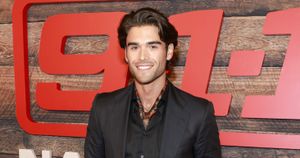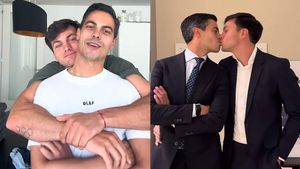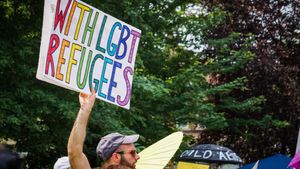A national gay
and lesbian group is accusing several religious
organizations of causing gay teens long-term harm by
offering parents what they call bogus therapies to
allegedly keep children from becoming gay. In a report
released Thursday in Miami Beach, Fla., the
National Gay and Lesbian Task Force Policy Institute
questioned whether the therapies are ethical or
effective and said state and federal authorities
should provide greater oversight when these programs are
aimed at youth.
The report said some Christian-based gay
prevention and treatment groups have used the First
Amendment protection of religion to avoid sanctions by
state health officials regarding counselors who offer
therapy without a license. Task Force executive
director Matt Foreman said officials need to ensure
that those offering such therapies are licensed as opposed
to simply being clergy and that clients and their
parents should be informed about the programs'
long-term success rates.
The report maintains that increasingly, those
attending seminars on homosexuality prevention and
treatment are parents who have gay or lesbian
children. Foreman called the programs frightening, adding
that they play into stereotypes and caution parents to
worry if their sons are "too feminine," often blaming
parents for their children's sexual orientation.
"Many of these programs are crossing the line as
to what is approved under freedom of expression,"
Foreman said during an interview with reporters. "This
deserves attention. It deserves to be regulated."
Foreman said he'd like to see more long-term studies on
the success of the treatment.
The report was released in Florida because it is
home to Exodus International, the umbrella
organization for Christian ministries nationwide that
seek to "convert" gays to heterosexuality.
Alan Chambers, president of Exodus
International, said he had not seen the report but
maintained that the ministries are successful. Chambers
said Exodus's 130 affiliated ministries use clinically
trained professionals, though he added that only 30%
have on-site professionals.
Religious leaders lead support groups, as they
might in the case of an Alcoholics Anonymous group, he
said. "The truth is that there are hundreds of
thousands of men and women like me who have found that
change is possible," said Chambers, who counts himself
among the "ex-gay." (AP)

































































Charlie Kirk DID say stoning gay people was the 'perfect law' — and these other heinous quotes